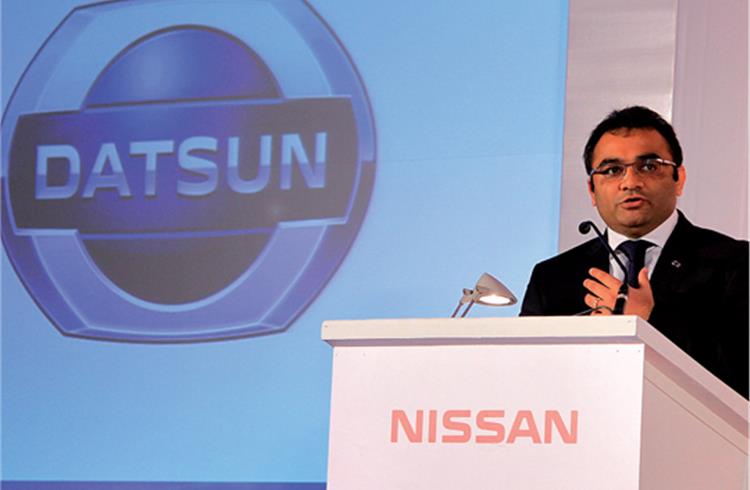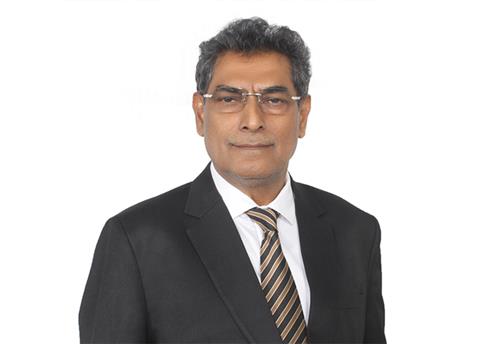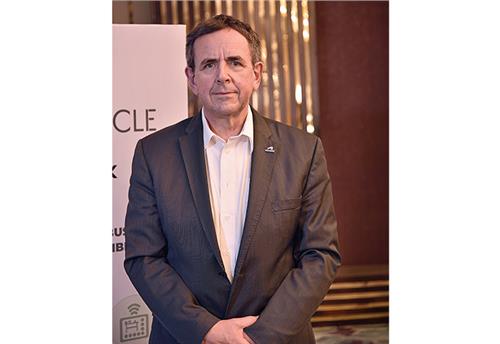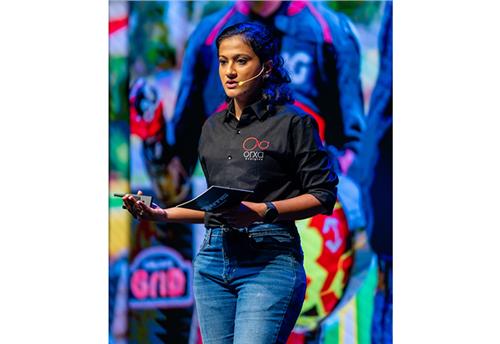January 1, 2013: Ashwani Gupta, Programme Director – Datsun Business Unit – Nissan Motor Company
The programme director – Datsun Business Unit – Nissan Motor Company tells Karthik H how Datsun would like to present itself to its target audience, the logic behind reviving the brand after three decades, and Datsun’s view on localisation.
The Datsun brand is being revived after a gap of 30 years. What was the primary need for this?
When we announced our Nissan ‘Power 88’ plan, we said that we were developing markets for the up-and-coming customers in the high-growth markets. The return of Datsun is in line with our mid-term plan of developing local products for the local buyers in local markets. What we are saying is that Datsun is a global brand that makes a local product. To differentiate very clearly, a local product is something driven by the local customer. When we talk about the global product, we are referring to a global customer with consistency.
How would you define your target customer?
Our customers are up-and-coming ones. They are eight percent of the top income group in India and Indonesia. The first criteria in India, as Nissan, we are present in above 50 percent of the Total Industry Volume (TIV) but not in the below 50 percent. By below 50 percent, I mean below the Rs 4-lakh mark. We believe that the customer who is looking in that bracket, is looking for some product that does not have antiquated technology on antiquated platforms but affordable and durable cars with modernity. The core of Datsun’s line-up will be below Rs 4 lakh.
One of the revelations during the brand announcement was that a two-generation-old Nissan Micra platform, the K11 platform, will be used to make the Datsun cars in India. Could you expand on this?
When we are talking about the line-up globally, we do have synergies and collaborations, not only within the platform, but within the alliance between Renault and Nissan. We will have ‘Carry Over Carry Across’, but that doesn’t mean we will do something that we think is right. We will do what the customer thinks is right. The people who are going to use the car want something futuristic and we will give it to them. I want to make the customer think ‘this car is made for me and not made by you’. We are working on unique platforms for each market and each product, but to have efficiency and effectiveness in the development and manufacturing, we are looking at synergies and ‘CoCa’ across the platforms and across the alliance.
Would it be right to call Datsun a low-cost brand of Nissan?
What we believe, and this is purely our belief, is that there is no hierarchy in the brand. There may be hierarchy in the price positioning, but not in the brand. Our target customers are those who are going to spend two or three years of their disposable income to buy our car. We could say as a brand that the price positioning is the entry-level, but for the customer, it is the value and not the price that is a differentiator. Products can be price- positioned based on the markets, features, and delivery of values but each brand has its own value.
What is Datsun’s strategy on sharing parts and platforms with the Alliance in India?
We need some synergies across the products and that has nothing to do with the brand. That is something the customer can’t see and what the customer doesn’t see is not a brand.When we are talking about our current target, the competitiveness is driven by economies of scale in terms of platform and component sharing. We will definitely have synergies, not only across the products, but across the company. We are working on different product solutions at present. We are working on unique platforms. Unique platforms can have some synergies. If the synergy makes sense, why not? Whether it will be visible, it may not be. If it makes sense for Datsun to share platforms or a part of it, why not?
Is it safe to assume that the Datsun brand will look at close to 100 percent localisation?
We won’t use the word localisation. It doesn’t bring any values to the customer. Frugal engineering definitely helps in achieving the cost objectives of a manufacturer, but this can’t be the sole driver. The driver for Datsun is customer needs and whatever the brief, we will translate it using frugal engineering.
You spoke of what Datsun will gain from the Renault-Nissan Alliance’s presence in India, but what would the Alliance gain by Datsun’s presence?
Right now, the Alliance does not have products that cater to the sub-Rs 4 lakh market. Datsun will bring them this exposure and crucial know-how. Datsun will bring accessibility to the Alliance as it aims to address the gap where the Alliance isn’t present. Within the Alliance, we believe in exchange of practices too.
How would the dealer network be set up? Given that you’re talking about being accessible to a segment where your parent company is not, would there be separate Datsun dealerships?
We are working on our dealer network plans. We will announce them shortly.
The Alliance partners both export their vehicles from the Oragadam plant. Does Datsun also have plans for export?
We have decided that Datsun is to have unique products in India, Indonesia and Russia. When it comes to other high-growth markets, if the value proposition that we have in any of these three markets matches with the other high growth markets, we will look at exporting. But export will not drive our business strategy. Does export make sense? Absolutely, yes. Our business is purely dependent on customer demands.
Does a diesel product make sense for the kind of price segment that Datsun is targeting?
There’s pretty much zero diesel below the Rs 4-lakh market. As a global OEM, do we have the technology? Yes, we have many technologies and product solutions across the board. What is the current situation in India? One forum is talking about diesel subsidies, one about diesel tax, one internationally about the sustainability of diesel subsidies. Since product solutions require a huge investment and long-term strategy, I think for diesel on Datsun – since we are targeting customers who are looking at a high return on investment – we will wait and watch how the things are evolving. But right now, with all these talks of subsidy, tax and investment, as of today, it doesn’t.
What exactly can an Indian customer expect when he sits in a Datsun car?
We have the DNA of Datsun which we will incorporate into our entire product line- up. We will look to make it as light as possible with modern engineering. At the end, it will give value to the customer which means fuel economy, modernity and light weight. This means it will remove all the non-value of the cost items which, in turn, means it will be competitive. Then we can use these kinds of cost efficiencies and create more value for the customers.This is being done by the local engineers. Till now, unfortunately, everybody is using the word ‘localisation’. For me, the word localisation is forbidden. To me, localisation means you develop some product somewhere for someone and then come and adapt and localise that for a market. But Datsun will be made here by the people here for the people here. So it is local. What they are looking for is clearly modernity, affordability and accessibility. The type of customers we are targeting does not have the options that we want to offer.
Is Datsun the kind of brand that does those things quietly? Can we expect a lot of marketing noise?
We are not going into a big blow, so it will be done quietly and that means putting the fundamentals in the right place. India is a sensitive but intelligent market, which means we can demonstrate what we say. We are coming here with a long-term plan. We will give time and space to our customer to evaluate us. We believe that the Indian customer understands very quickly who is doing what and our delivery of objectives will make them confident that they are getting the right product that is meant for them.
RELATED ARTICLES
BRANDED CONTENT: 'We aspire to be among the leading sensors and electro-mechanical products manufacturer'
P. Parthasarathy, Founder & Managing Director, Rotary Electronics Pvt Ltd shares the company's commitment and vision to ...
‘Big opportunity for startups lies in products in India’: Detlev Reicheneder
As electrification levels the playing field, the focus on tech and R&D to bring innovative products is the mantra for st...
'I hope my journey makes people say — I can do this too'
Ranjita Ravi, Co-founder of Orxa Energies — the maker of Mantis e-bikes — shares the challenges of building a startup an...





 By Autocar Pro News Desk
By Autocar Pro News Desk
 03 Jan 2013
03 Jan 2013
 5091 Views
5091 Views









